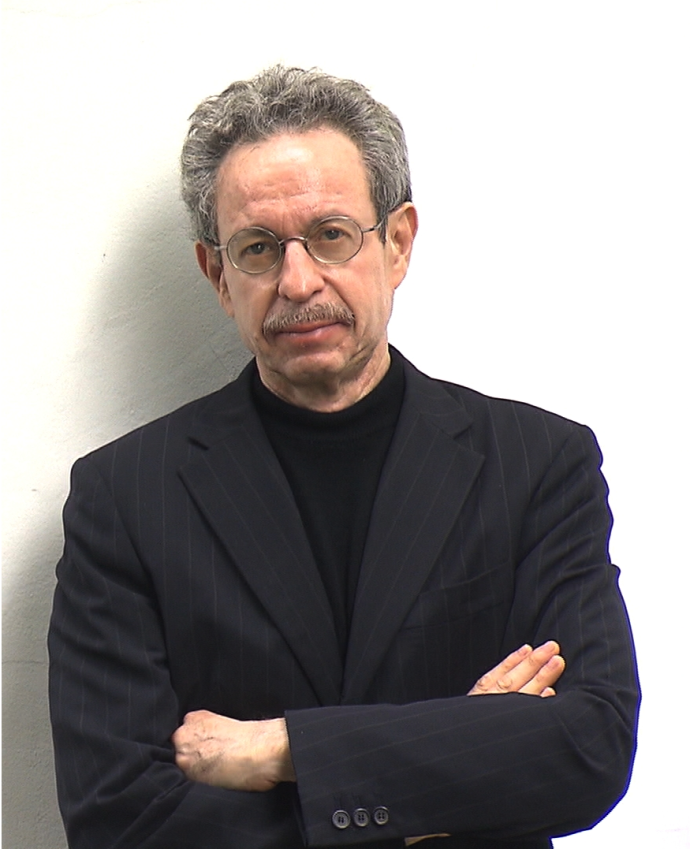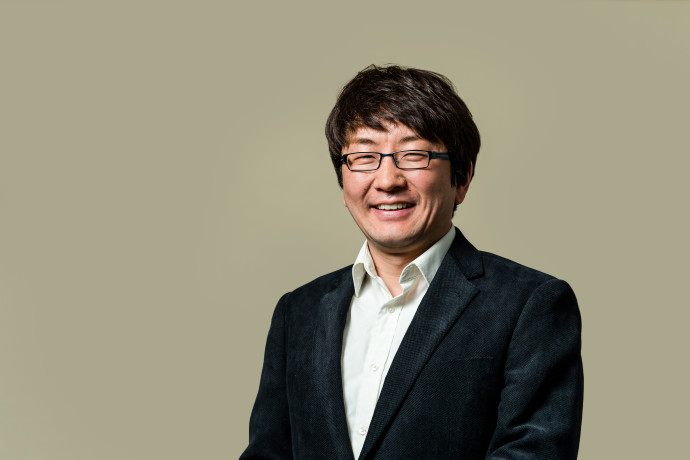Groucho Marx, the famous comedian and leader of the Marx Brothers, once said, “I intend to live forever or die trying.” For many of us, whose immediate concerns are focused on work, paying bills, or finding the television remote control, thoughts about death and immortality may not be high on our list of priorities. Yet, for those involved in the philosophy of religion, pondering death and immortality is a major concern.
To that end, a group of philosophers will be gathering at the University of Birmingham from June 28-30 to discuss this very subject at the Global Philosophy of Religion Project Conference 2022. The Global Philosophy of Religion Project is an international initiative supported by the John Templeton Foundation and the Dynamic Investment Fund at the University of Birmingham.
The conference will address philosophical issues concerning death and immortality by discussing questions such as: whether there is a coherent model of immortality, if belief in the afterlife requires supernaturalism, whether such a belief has implications for the metaphysics of the human person, and if such a belief can be justified through empirical evidence or philosophical arguments.

It will be conducted in partnership with Closer to Truth, the acclaimed TV and digital media series hosted by Robert Lawrence Kuhn, which features on-camera conversations with scientists, philosophers, theologians and scholars, covering a diverse range of topics on questions such as consciousness, meaning and the cosmos.
Prior to the conference, this writer spoke with Yujin Nagasawa, professor of the philosophy of religion and co-director of the Birmingham Centre for Philosophy of Religion at the University of Birmingham; Eduard Shyfrin, a well-known authority on the Kabbalah of Information, whose articles on the subject appear in The Jerusalem Post, and who will be speaking at the conference; and Dr. Robert Lawrence Kuhn, creator and host of Closer to Truth, who will be showing videos from the conference on the Closer to Truth program.
Prof. Nagasawa notes that, for the most part, the philosophy of religion has focused primarily on the Christian tradition and says, “We want to globalize the philosophy of religion in order to address fundamental questions of religious beliefs and practice from diverse perspectives.”
The three-day conference will host speakers representing 11 different religious traditions, including Judaism, Christianity, Islam, Buddhism, Hinduism, Jainism, Taoism, African religions, Zoroastrianism, and Atheism, and will include speakers from 18 different countries in Asia, Africa, Europe, North America and the Middle East, all of whom will be speaking in English.
Kuhn concurs and says that his program was skewed in the philosophy of religion toward Christian philosophy because he says, some of the most sophisticated philosophy since the Middle Ages has been primarily Christian. The Global Philosophy of Religion Project, he explains, gave the program the incentive to reach out to philosophers in other religions, including Judaism, Islam, Shintoism and others. “We’re looking for people in the tradition who are believers of the tradition and who represent the tradition, but yet have deep philosophical understanding,” he says.
It was in the process of researching new philosophers, says Kuhn, that he came across the work of Eduard Shyfrin in the Post. “In each of the traditions,” Kuhn says, “we have wanted to look at the main tradition from a philosophical point of view, but also if there’s an important subset that deals with more of the ontological and epistemological aspects of the religious tradition. That’s when I came across Eduard’s work on the Kabbalah of Information.
“Kabbalah is a very significant subset of Jewish thinking, particularly when the orientation that we had, which is this ontological orientation, and that’s what led me to approach Eduard.”
For his part, Shyfrin is pleased and flattered to be invited to the conference. “I am not a professional theologian,” he says. “I was trained in physics and became a businessman, but I am self-taught in theology.” Shyfrin is the author of From Infinity to Man: The Fundamental Ideas of Kabbalah Within the Framework of Information Theory and Quantum Physics, published in January 2019.
“I believe that every person, regardless of their background or intellectual level, thinks about death. What happens afterward? Will we exist or cease to exist?
Eduard Shyfrin
In his book, Shyfrin introduces the reader to basic principles of Jewish mysticism such as the 10 sefirot – the Divine attributes of God; the description of God as ein sof, absolute perfection; and the idea of ohr ein sof, the unending Divine light. He then discusses basic principles of quantum physics and compares many of the concepts of Kabbalah to those of quantum physics, including the theory of information as discussed in Kabbalah and quantum physics.
In Kabbalistic belief, Shyfrin writes, God created the world with the letters of the Hebrew alphabet and with the 10 Sefirot, which today would be termed as “information code.” Information, he posits, is the basis of all reality and is a concept that has gained popularity in modern science.
Nagasawa says that the Templeton Foundation funds projects combining religion and science, making Shyfrin’s “Kabbalah of Information” approach especially interesting. “One of the reasons why it’s important for us to have a speaker like Eduard is that we really care about the relationship between science, philosophy and religion,” he notes.
Nagasawa adds that the conference will be hosting sophisticated thinkers who present original ideas. “We didn’t want to have a Judaism 101 or Islam 101. We want to have original thinkers with original ideas. Eduard brings a mystical tradition of Kabbalah with information theory and quantum physics. He has very original ideas about immortality and the nature of God that are really fascinating.”
While the erudite philosophers at the Birmingham conference will undoubtedly reach the heights of religious philosophy, what practical lessons can the average person learn from their deliberations?
Shyfrin answers first. “I believe that every person, regardless of their background or intellectual level, thinks about death. What happens afterward? Will we exist or cease to exist? I believe that every person thinks about it. If, at the conference, we can communicate some ideas in a simple language accessible to a majority of people, and give them hope, and at the same time, bring them closer to the values of all the religions, it will be a great achievement.”
Nagasawa agrees with Shyfrin’s assessment of the average person’s feelings on the subject.” I think immortality is a topic that is relevant for everyone, because everyone who will be reading this article who is currently alive will eventually die. Is there something beyond death? If there’s nothing after our death, that itself is a kind of discovery.
Philosophers tried to explore if the afterlife is in principle possible, and if so, what kind of afterlife we could have.”Nagasawa mentions some of the theories of the afterlife, including incarnation, reincarnation, heaven, hell and purgatory. “Maybe ultimately, we will become part of the unified whole or some universal consciousness, or we might exist as individual beings as we do now. Maybe you become a disembodied being, and we’ll be interacting even after our death. We can speculate on all sorts of possibilities.”
He also speculates on whether immortality is altogether a desirable alternative. “Another related question I’m interested in is whether immortality is a good thing,” says Nagasawa. “Sometimes people say that immortality is boring because if we have to live forever, eventually we will run out of things to do. Others will say that if we are not immortal, then life is meaningless because whatever we achieve, there is the end, and that’s it. I am interested in the possibility of immortality and the desirability for immortality.”
Kuhn, a voluble speaker, says that he would not find immortality boring because he would spend eternity in discussions with Shyfrin and Prof. Nagasawa. “I can go on forever arguing with my friends,” he quips.
On a more serious note, he points out that the popularity of Closer to Truth, which is produced and directed by Peter Getzels, indicates that many millions of people around the world think seriously about these issues. The program’s YouTube channel has over 446,000 subscribers, with more than 59 million total views and over 200 million minutes of watch time.
Kuhn notes the commonality of these questions across different traditions and the ubiquity of the interest in these questions irrespective of all the distinctions that human beings make among each other. “We have tens of thousands of comments about Closer to Truth over the years, mainly on YouTube, and it’s amazing to see the diversity of ages, genders, religious traditions, ethnicity and geographical origin.
“Many of these people will say that until they engaged with Closer to Truth, in their world they were the only ones who were concerned about it, and they’re not academics. Seeing other people interested in this question gave them a sense of belonging because they thought they were almost crazy in their world for thinking about these questions so deeply.”
In that sense, says Kuhn, an article about death and immortality validates the thoughts of those readers who do think about this subject. “There will be those for whom this will resonate, and it will help them in their complex dealing with the subjects.”
Our interview concludes with a final question about how the pandemic and the war in Ukraine have affected the philosophy of religion. Shyfrin has family living in Ukraine and has a long tradition of supporting Ukrainian Jewry. When the crisis broke out, he provided significant financial support to help evacuate Jewish families to Israel and Hungary.
Nagasawa smiles and says that the question will be addressed at the next conference, which will focus on the topic of evil and suffering in the world. Our Zoom interview ends, and Prof. Nagasawa, Dr. Kuhn, and Kabbalist Shyfrin return to their work and deliberations, addressing the philosophical issues of religion, one day and one issue at a time.
To purchase Eduard Shyfrin’s book ‘From Infinity to Man: The Fundamental Ideas of Kabbalah Within the Framework of Information Theory and Quantum Physics’ please click here. To purchase Eduard Shyfrin’s book ‘Travels with Sushi in the Land of the Mind’ please click here.

